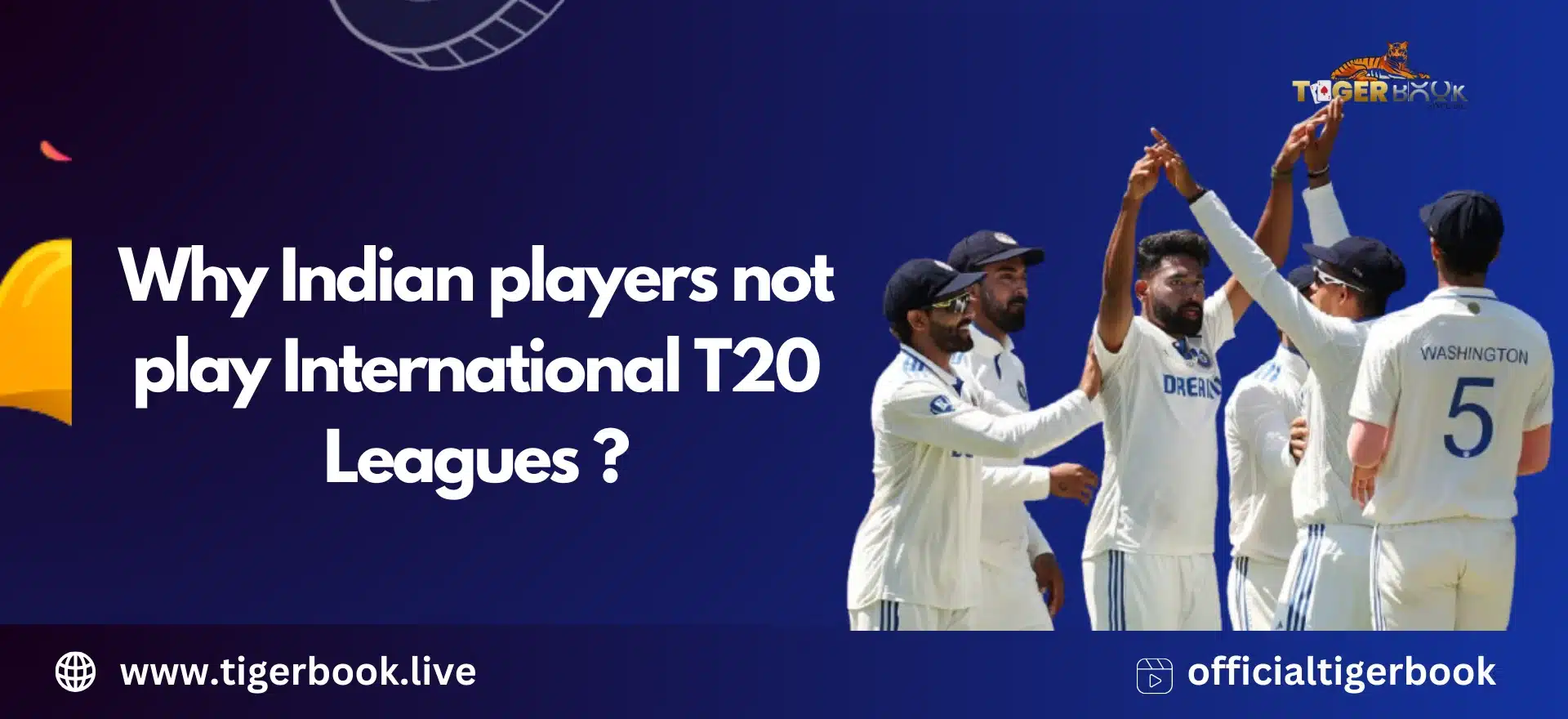
Indian cricket superstars are most famous for their cricket skills on the global stage. They have huge fans around the world, but we rarely see them play in international T20 leagues like the Big Bash League (BBL), Caribbean Premier League (CPL), or SA20 in South Africa.
The reason behind this? It’s due to a BCCI (Board of Control for Cricket in India) strict policy, where they prohibit active Indian male players from participating in international T20 league. This has been a long-standing policy and still restrains them from playing outside of the IPL.
BCCI’s Control Over Indian Cricket
The BCCI (Board of Control for Cricket in India) is one of the most powerful and richest cricket boards in the world. This indian government body has run indian cricket from its inception. BCCI has a strong influence all over the cricket world, and it is transforming the cricket industry.
The Indian Premier League (IPL) is one of the largest and most competitive T20 leagues. BCCI made a huge deal with Tata, where Tata sponsored the Indian Premier League for ₹2,500 from 2024 to 2028. BCCI earned a revenue of ₹20,686 crore in 2024. That’s why IPL is the lifeline of India’s cricket economy.
Reason behind the Restriction for International T20 League
BCCI is protecting the IPL monopoly by preventing active indian players from joining foreign T20 leagues. BCCI doesn’t want to take risks for their players; they want their players only to play for indian fans and entertain them. continuously without any barrier, like injuries, etc. If Indian players played in an international T20 leagues, then IPL’s fame would reduce, and their sponsorship and fan base might go away. That’s why BCCI has a strict policy for indian players to play in international T20 leagues. BCCI wants its players to keep the focus, fame, and finances at home.
Start online betting on the England vs India Test championship with gold365.win 🔑 online gaming platform!!
BCCI’s Strict Rule: No Foreign Leagues for Active Players
The BCCI has a strong regulation: if an Indian player wishes to play in an international T20 league, he needs to retire first from all Indian cricket, including international cricket and domestic competitions like the Ranji Trophy.
This regulation has been strictly enforced for years. A clear example was in 2010, when Cricket Australia attempted to recruit Indian players such as Rohit Sharma to the newly introduced Big Bash League (BBL). The BCCI quickly rejected this, concerned it would lose management of players and the IPL’s popularity would reduce if Indian superstars played in other leagues.
Since then, the policy has not shifted, actively excluding active Indian cricketers from every international T20 competition bar the IPL.
Creating a Monopoly with the IPL
The BCCI has even been granted an exclusive IPL window in the international calendar of the ICC. The few international matches scheduled during this time ensure that nearly all the best players across the globe can play in the IPL without any conflict or distraction from any league.
This enhances the quality of the tournament (IPL) and ensures the maximum level of fan attention and media reporting. Any loosening of the foreign league ban could put this dominance at risk.
By preventing Indian players from playing in other foreign T20 leagues, the BCCI keeps viewership, fans, and sponsor revenue with the IPL.
The Other Side: Missed Opportunities and Global Experience
Despite its benefits, the BCCI’s policy has faced growing criticism. In 2022, former India head coach Rahul Dravid noted that Indian players lack experience in foreign playing conditions, which could be one reason behind India’s T20 World Cup semifinal exit of 2022.
He urged that participation in foreign leagues could better adapt the players and improve their experience on the international stage. But he warned that it could weaken domestic cricket, just like it did in the West Indies, where T20 leagues hurt their first-class system.
Indian Test cricket strength comes from a strong domestic league like the Ranji Trophy. Taking risks with these types of leagues can reduce the potential of indian cricketers. After the IPL comes in cricket, Indian players rarely play for these domestic leagues, which impacting indian team. Some of the players are changing the trends and players like Unmukt chand and Agni Chopra retired earlier to explore Major League Cricket in the USA.
What’s Next? A Balanced Approach
A majority of the experts now feel it’s time the BCCI changed its approach. A middle-point approach can be making white-ball experts or regular national team players participate in international T20 leagues during the off-season. This way, players gain useful experience without disturbing India’s domestic season or important international matches.
At its core, the BCCI’s strict policy is about control, protecting the IPL brand, and keeping the spotlight at home. But as cricket continues to evolve, especially in the fast-moving T20 landscape, a more flexible approach might be necessary, not just for the growth of individual players, but for the future of Indian cricket itself.


